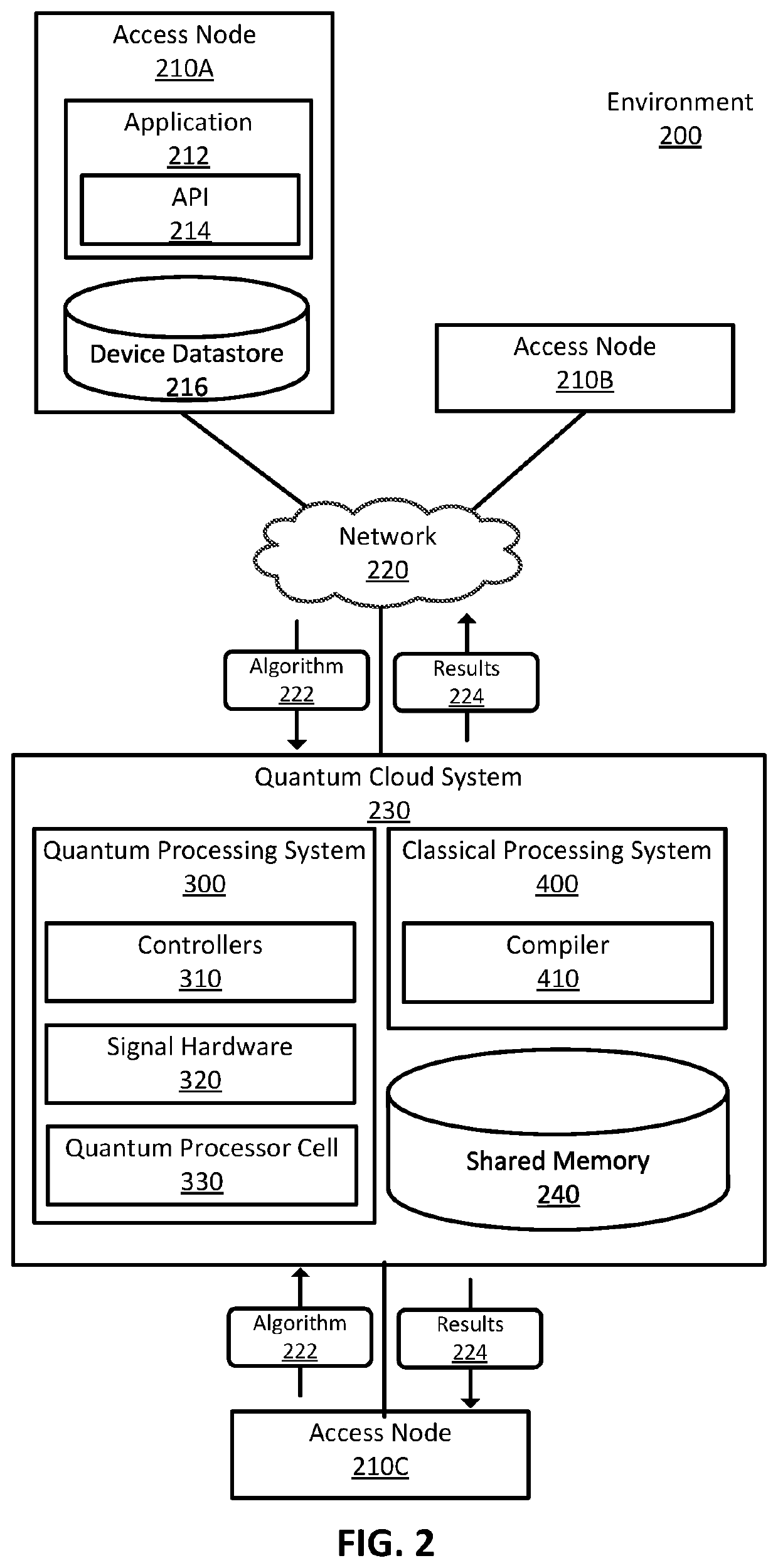Quantum instruction compiler for optimizing hybrid algorithms
a compiler and quantum instruction technology, applied in the direction of program code transformation, instruments, kernel methods, etc., to achieve the effect of efficiently addressing quantum instructions
- Summary
- Abstract
- Description
- Claims
- Application Information
AI Technical Summary
Benefits of technology
Problems solved by technology
Method used
Image
Examples
Embodiment Construction
I. Introduction
[0025]Quantum computations are fundamentally different from classical computations. Real-world computing applications rarely use solely quantum computations and are generally a hybridization of quantum and classical computations. However, executing quantum computations requires a highly specific set of hardware, and integrating the results of those quantum computations with classical systems is challenging.
[0026]Algorithms, when executed, manipulate and read information stored in a quantum bit (i.e. qubit). A qubit is fundamentally different from a classical bit. A classical bit has two possible states, typically represented as a 0 or a 1. Ostensibly, a qubit also has two measurable outcomes which can likewise be represented as a 0 or a 1. However, the state of a qubit is a superposition of the two measurable outcomes, i.e., some probability of a 0 state and some probability of a 1 state. Hence, a qubit can encode more information in its state than a classical bit.
[00...
PUM
 Login to View More
Login to View More Abstract
Description
Claims
Application Information
 Login to View More
Login to View More - R&D
- Intellectual Property
- Life Sciences
- Materials
- Tech Scout
- Unparalleled Data Quality
- Higher Quality Content
- 60% Fewer Hallucinations
Browse by: Latest US Patents, China's latest patents, Technical Efficacy Thesaurus, Application Domain, Technology Topic, Popular Technical Reports.
© 2025 PatSnap. All rights reserved.Legal|Privacy policy|Modern Slavery Act Transparency Statement|Sitemap|About US| Contact US: help@patsnap.com



